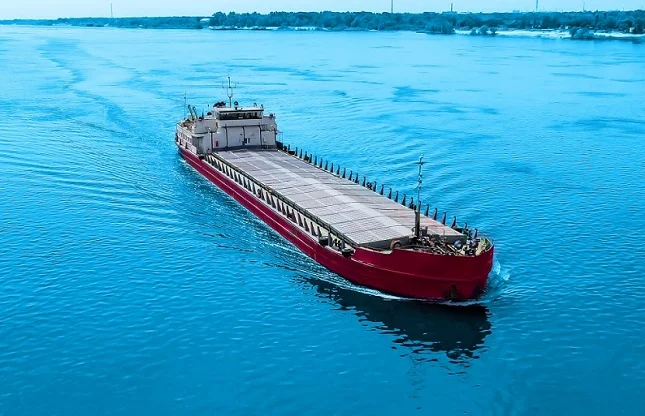The United Nations has acknowledged that even though “meaningful progress” has been made on the export of Russian food and fertilizer, there remain obstacles, notably with regard to payment systems.
“Our efforts to overcome those obstacles will continue unabated,” said Stephane Dujarric, Spokesman for the UN Secretary-General, a day after Russia agreed to the next extension of the Black Sea Grain Initiative, though only for 60 days this time around.
The United Nations-backed initiative between Russia, Ukraine and Turkey was signed on July 22 last year along with another Memorandum of Understanding (MoU) between the Russian Federation and the UN to facilitate unimpeded exports of its food and fertilizer.
As the expiration of the second 120-day extension neared on March 18, UN Under-Secretary-General for Humanitarian Affairs and Emergency Relief Coordinator Martin Griffiths and Secretary-General of the UN Conference on Trade and Development (UNCTAD) Rebeca Grynspan, met with a high-level Russian delegation led by the country’s Deputy Foreign Minister Sergey Vershinin in Geneva.
While the UN spotlighted that the Black Sea Grain Initiative has benefited developing countries the most and supported food security among the most vulnerable, Vershinin made it clear that only the Ukrainian part has been effectively implemented so far as the Russian agricultural exports continue to be blocked as a result of Western unilateral sanctions.
From today’s noon briefing: Secretary-General @antonioguterres and his team are focused, in close contact with all of the parties, on doing everything possible to ensure the continuity of the Black Sea Grain Initiative. pic.twitter.com/cobOGxqwJ5
— UN Spokesperson (@UN_Spokesperson) March 14, 2023
Moscow has alleged that Russian agricultural exports have been blocked while the export of grain from Ukraine continues unhindered and is on the rise, bringing considerable profit to the regime in Kyiv, including to pay for the current supplies of Western weapons and ammunition.
“There has been and continues to be no progress on reconnecting Rosselkhozbank to SWIFT, resuming supplies of agricultural machinery and spare parts to Russia, lifting restrictions on insurance and access to ports for Russian ships and cargo, as well as unblocking the accounts and financial activities of domestic fertilizer companies,” said Russian Foreign Ministry spokesperson Maria Zakharova in Moscow on Tuesday.

‘Without concrete progress in solving these systemic problems, all the Westerners’ oaths about humanitarian exemptions from their sanctions, assurances of commitment to global food security and expressions of support for the efforts of the UN Secretary General are nothing more than deliberate cunning and outright lies,” she added.
The UN, meanwhile, insists that agreement regarding the Black Sea Grain Initiative, alongside the MOU on the export of Russian food and fertilizer, are both critical for global food security, especially in developing countries.
It revealed that the FAO Food Price Index has decreased for 10 consecutive months since reaching record high levels in March 2022, clearly demonstrating the positive impact of both agreements on global food prices.
Secretary-General Antonio Guterres has also confirmed that the UN will do everything possible to preserve the integrity of the Black Sea Grain Initiative and ensure its continuity.
#Ukraine has exported over 24 million metric tons of grain and food products to 45 countries through the Black Sea Grain Initiative since August 2022. Check out our latest animation of vessel movements across the globe.
Explore the data on #HDX: https://t.co/I3ut2j53Eb pic.twitter.com/Nb141hBLTf
— OCHA Centre for Humanitarian Data (@humdata) March 15, 2023
The two agreements, UN has mentioned in its latest report, have had a positive impact on global food security, with millions of tonnes of grain reaching global markets.
It says that the Black Sea Grain Initiative has allowed the exports of 24 million MT of grains and over 1,600 secure vessel voyages through the Black Sea with 55 per cent of food exports going to developing countries.
“The Black Sea Grain Initiative is one example of concrete action to navigate some of the worst cost-of-living crisis the world has faced in a generation. But concerted global efforts are needed to work in tandem,” the UN report said.




















